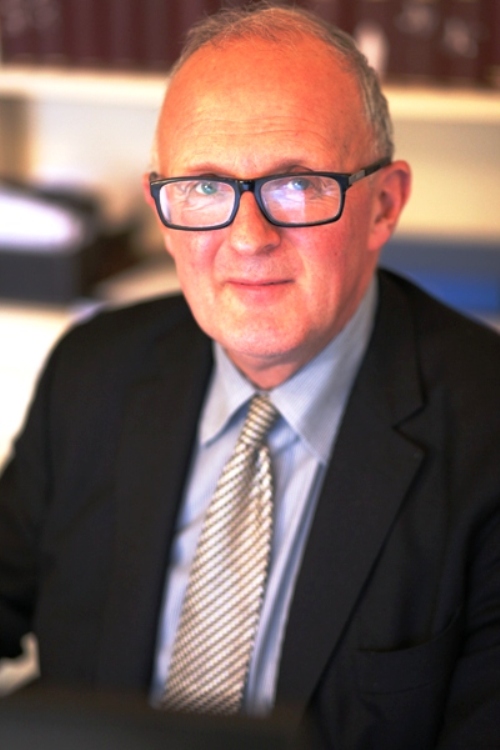 Sir David Butler:
Sir David Butler:
On 5 November a packed crowd in the Medieval Kitchen was treated to a virtuoso performance by Sir David Butler, interviewed by Michael Crick of Channel 4 News. Michael has recently produced an excellent book about David, entitled “Sultan of Swing” (Biteback), covering David’s role as a TV pundit; the person who introduced the idea of the swing (and the swingometer) to British politics and a man who knew everyone who was anyone on the political scene for decades. David is now 94 and has been an active student of the political scene since he came to New College in 1943.
He recalled meeting Churchill one to one for no less than four hours when he (David) was 25, just before the 1951 General Election. Churchill told him that he had to get a move on, as he was only a year younger than Napoleon when he crossed the bridge at Lodi, the advance in northern Italy which Napoleon later regarded as the key turning point in his carerer. David also gave his fascinating recollections of meeting President Kennedy. He also spoke of his lifelong friendship with Tony Benn with whom he shared tutorials at New College.
He developed the idea of the swingometer from (he said) his love of cricket scores. Michael gave some great insights into modern politics including the interesting fact (which I had not clocked before) that no Minister or political adviser presently in place has come from a background of working in higher education; this is still probably the first Government where this is the case.
It is not generally known that David was Politics Tutor for eight years (1956-64) at Brasenose and clearly retains great affection for the College. It was wonderful to find him so alert and interested in politics.
Welfare Lunch:
Our Welfare Lunch on 6 November featured Dr Amanda Bremble, Clinical Psychologist, Oxfordshire Roads to Recovery, who also works for the Oxford branch of Turning Point, spoke on the topic of welfare in relation to misuse of drugs including alcohol. She provided some fascinating material as to the reasons why people take drugs, which she divided into social, emotional and psychological.
Sir Julian Brazier:
Later in that day and hard on the heels of the Butler event, we welcomed our alum Julian Brazier to the PPE Society. He was Conservative MP for Canterbury from 1987 until the last General Election. He spoke about Brexit, which he saw as a great opportunity for the UK. He explained his own journey from voting for the Maastricht Treaty to moving to Brexit, and pointed in particular to the single currency as a major problem. He recounted that there was no group of disparate countries with a single currency that had worked. As to the economic effects of Brexit, he pointed out that unemployment was at a very low rate and many companies were opening or expanding in the UK. He said that the outflow of £350m a week to the EU, which was on the side of the Brexit Campaign Bus, was nearer the truth than people imagined.
Graduate Dinner:
On 8 November the first Graduate Dinner of the academic year took place. We were addressed by Sir Charles Godfray, the current Head of the Oxford Martin School, who emphasised the links between different fields in a delightfully engaging speech.
Miscellany:
I am delighted to report that the Greenland Library was awarded a certificate at the Oxford Preservation Trust annual awards, in the category of “large building conservation”; https://www.oxfordpreservation.org.uk/content/opt-awards. It is indeed a magnificent building, expertly reconstructed, and congratulations are due to the whole team who worked on it.
I attended the Lady English Annual Lecture on Equality and Excellence. This year there was a panel of Prof Anand of Oxford and Harvard, Prof Ian Goldin, former Head of the Oxford Martin School, and Lucy Lake of the Campaign for the Education of Women. The title was “The Future of Equality; Global Perspectives”. The degree of global inequality was at the heart of the presentations and the statistics are worrying. One amazing fact was the growth in the number of Chinese billionaires was also stark, rising from zero in 1996 to two in 2005, 251 in 2016 and 319 in 2018. The lecture was great in putting these matters on our agenda. We will be introducing our own Equality Lecture series next term.
Follow us on Twitter
Follow us on Twitter for news from students and tutors, Schools Liaison and other interesting things
